For many people, artificial intelligence holds a big promise of a better, easier and longer life. Perhaps even more. The technological revolution unfolding before our eyes is delivering machine learning, deep learning and cognitive computing (i.e., generally, machines capable of learning from their own mistakes, or from patterns discovered in large databases), and the smart technologies posed to permeate our daily lives, such as autonomous vehicles and the Internet of Things (with its capability to combine devices into one intelligent organism). Also importantly, the computational power of computers has grown exponentially, supported by complex algorithms and neural networks (natural language recognition, voice interaction with humans, analysis of various data types) or quantum mathematics. This, among others, helps support intelligent voice assistants (often acting as empathetic advisors), automated business processes, robotization and the spread of augmented and virtual reality. When will we cease to be biological people?
Technological evolution
All these things sound impressive, heralding a qualitative change in our daily lives. Sophisticated technologies not only gradually transform business models and learning tools, but also become pervade our daily lives. With smartphones in hand and virtual “versions” of ourselves on the Internet, we integrate with the growing digital virtual space. Can this progressive technicization of our existence affect our biological, spiritual and intellectual makeup? Will artificial intelligence continue to grow ever more autonomous? And if it does, what will this mean for our collective consciousness as a species? Are we on the verge of an existential breakthrough? Some scientists believe so, claiming that the change is evolutionary and that the key driver of human evolution today is modern technology.
A cosmic brain-to-brain connection
I can still remember the question a friend of mine asked me in my first year of high school. How do you think the ape that became the first man felt?
The question amused me to tears, but despite its evident humor, it contained philosophical content. I recalled it recently while reading the article “Humanity is about to transition to ‘evolution by intelligent direction’” on futurism.com. Its author argues that the human species has entered a new phase in evolutionary development. “I believe we are rapidly heading towards the next evolutionary step into what I call ‘meta-intelligence’, a future in which we are all highly connected, brain to brain. It will become possible thanks to the sharing of thoughts, knowledge and activities, and the technological basis of this process will be ‘THE CLOUD’.”
Having announced the transformation of humanity and its transition to a different level of existence, the author lists the drivers of this process: the wiring of the planet, a brain-computer interface, the emergence of artificial intelligence and the opening of the space frontier.
The Internet is capital
The “wiring” part of the process is largely in place. The whole of humanity is becoming connected to the global web and, within years, every inhabitant of the planet will enjoy full access. This will place new communications options and unlimited digital data, products, services and content at our fingertips. Never before in the history of mankind have we faced a change so widespread and in fact so democratic. Thanks to the “wiring” of the planet, each of us can today or in the near future gain access to the entire global, intellectual and cultural achievements of humanity. Granted, high quality content may only be accessible at a charge and therefore only to some of us. In general, though, all of mankind will benefit. Never before in history have we had so many opportunities to use all of the intellectual value that we create. This unlimited access to knowledge, goods and services can be seen as an improvement of our existence, provided that more knowledge and information fuels evolution.
Within merely two decades, the world wide web has driven the rise of a global economy with its new business models, tools and communication platforms. The freely flow of data sets of cosmic proportions (big data) that the web has enabled is gradually becoming a solid, unbreakable, technological foundation for this economy. Thanks to the global web and its online tools, all or almost all of us can offer business or social products of all kinds to any interested customers. Like no other human invention, the Internet has helped tear down barriers to the growth of our civilization and economy. While the Internet revolution began in the 1990s, with consequences extending into the present day, the 21st-century revolution is about artificial intelligence pervading all spheres of life. Both the web and AI are game-changers.
The brain as part of the interface
The author of the above-mentioned article has also noted that the interface constitutes a direct link between the human brain and the computer. Science fiction fans are very familiar with this idea, which has for years been a popular theme in pop culture and literature. It was pioneered by William Gibson in his novel “Neuromancer”.
What for long has only existed in the imaginations of artists and futurologists, is now becoming reality. The way we interact with computers has hardly changed in decades as we still largely rely on our hands. Soon though, an interface that directly transmits impulses (thoughts, commands) from the human brain to the computer could deliver significant efficiency gains, time savings, and even a sense of closeness with the content we create. Reports on research laboratories developing broadband connections between digital machines and the cerebral cortex no longer blow our minds. One example of such efforts is the Neuralink project by Elon Musk, who invests millions of dollars in research into better and more efficient interactions between the human brain and the machine.
Take, for instance, the American company Kernel, which does research into medical solutions to better understand how the human brain works. Kernel’s founder, Brian Johnson, hopes some day to be able to “expand” the human brain to make people smarter and healthier. Today, Kernel scientists are designing software to help alleviate neurological conditions and disorders such as epilepsy and Alzheimer’s disease.
Their ultimate goal is to implant a chip in the human brain to link people to a cloud. This would expand human memory and enhance our cognitive function beyond imagination. We could connect with other human brains just as today we communicate with other people’s computers or telephones. In this way, we could explore all the content ever created in human history as well as that developed through current intellectual effort.
We would not need computers with storage discs nor external devices. As utopian and fantastic as this may sound, Johnson argues that the ability to implant chips into the human body is no longer in question as an affirmative answer has already been given. The only question that remains is when this will happen. And when it does, are we going to witness the birth of an unprecedented cosmic meta-intelligence? The vision is very exciting, but its consequences are hard to predict. My comment would be that by providing every individual with access to all human knowledge, retrievable within a second, we would inevitably propel us forward in our development leading to the birth of what the author of the said article calls “meta-intelligence”.
Artificial intelligence, supported by constantly developed deep learning models funded by such companies as Google, Facebook, IBM, Samsung and Alibaba, will grow faster and almost exponentially. The total “metainteligence” (both artificial and human) can be the greatest success factor for both companies and nations. For this reason, next to the starting “arms race” in artificial intelligence, we will soon see a race aimed at increasing the overall human intelligence at the level of entire countries.
“Enabled with BCI and AI, humans will become massively connected with each other and billions of AIs (computers) via the cloud, analogous to the first multicellular lifeforms 1.5 billion years ago. Such a massive interconnection will lead to the emergence of a new global consciousness, and a new organism I call the Meta-Intelligence”.
Related articles:
– Artificial intelligence is a new electricity
– Machine, when you will become closer to me?
– A machine will not hug you … but it may listen and offer advice
– What a machine will think when it looks us in the eye?

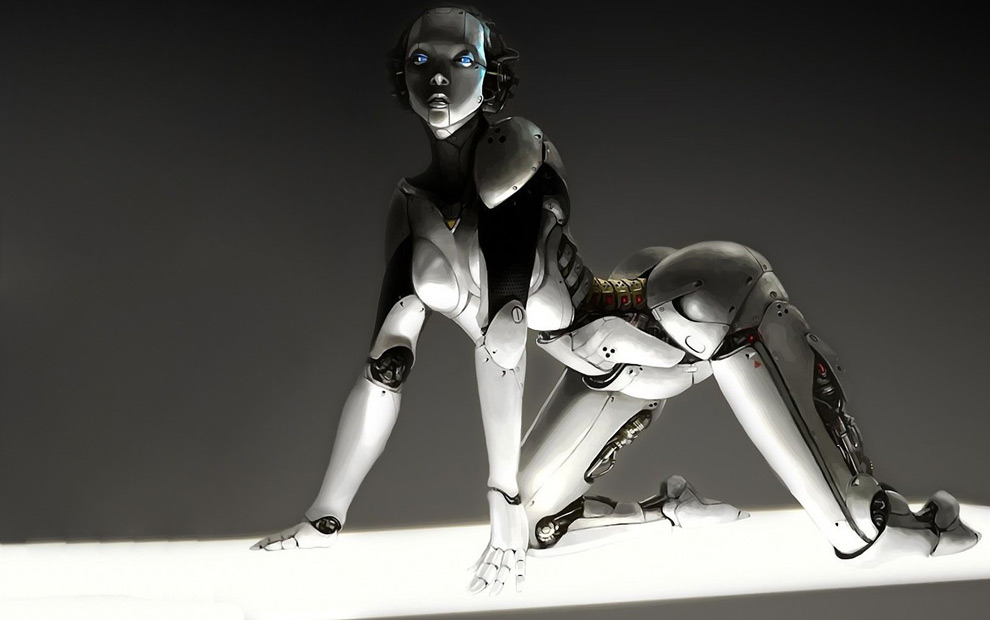
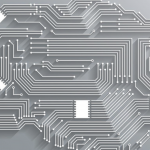
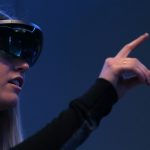
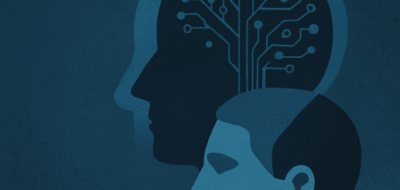


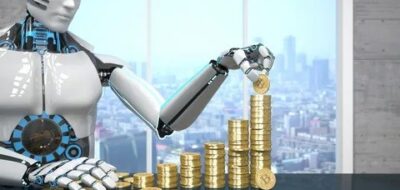


AndrewJo
Awesome post! Thank you Norbert!
Tom299
Unless restricted to a predetermined set of options, it loses the thread of the conversation after a reply or two. In a similar way, the creative neural nets have no real grasp of what they’re writing, and no way to produce anything with any overarching coherence or narrative.
Adam Spikey
I guess that is still about simple queries, not about conversation – even about something simple as – “on my invoice is higher amount of money to pay, than It supposed to be, why is that?”
ZoraBora
Interesting read
Acula
Interesting and still scary. Probably because people still cannot grasp it and the Matrix movie is too fresh for some and people still need to see the bright light of this tech advancement. And somehow it could not stop me thinking that “Indeed, jobs where human interactions, creativity and emotional intelligence matter should not be endangered” but this is already happening. Everyone is behind its mobile device and interaction hardly happening. Maybe a robot will help change that as we are so obsessed with devises that chatting to a robot will become the new norm of interaction…
TomK
“Aristotle famously stated that the mark of an educated mind is the ability to entertain a thought without accepting it” https://diginomica.com/2018/06/04/ai-curve-fitting-not-intelligence/amp/
johnbuzz3
Humanity has gone through a similar transition – from agrarian to industrial. But the jobs created were not mechanics for farm machines, but using industrialization to solve problems on a new scale. Similarly, I don’t see the new jobs coming from robot-caretaking, but from utilizing robots and AI to solve the problems that matter to each of us. And championing those solutions, utilizing robots and AI, will be the new job market of the future.
John McLean
Humans are nothing but a bunch of atoms.
Adam Spikey
Sometimes you need to understand the past a little to more clearly see how thing will go in the future.
CaffD
Old common logical thought was changed on a new ” invented” logical thought.
Before the new ” invented” logical thought wasn’t in the brain’s program.
How does a new ” invented ” thought appear?
How can one program-state, internal to our brain, represent another
physical program-state radically different (!) from the first state?”
Einstein was a pioneer of a new discovery and said:
” Invention is not the product of logical thought . . . ”
What does can mean?
In my opinion:
New invention is ”a product” of subconscious quantum process (!) when
old logical thought changes on a radically new logical -conscious thought
Karel Doomm2
So what ends up mattering isn’t intelligence (as all structures are intelligent), but the extent (death) to which an intelligence can predict (influence) the future (as compare to other intelligences). As is true of any energy topology, what matters is shortest path predictions. We know the ultimate (if asymptotic) state (heat death), that can be predetermined once, but what we don’t know and can never know is exactly what the shortest path from any here and now to that one then and there.
Tom Jonezz
When following contemporary political debates you quickly notice that it is en vogue to talk about the digital economy. The catch-all term ‘digital’ may have been added to numerous political concepts in recent years but beyond such branding there has been very little debate of substance about what a comprehensive policy response to the threat of technological unemployment could be. As mentioned above, we do not know whether some of the more sombre predictions about large-scale job losses will materialise but we do know that governments need to be prepared if and when substantial labour market shifts occur.
AndrewJo
People still cannot grasp it and the Matrix movie is too fresh for some and people still need to see the bright light of god huge advancement. And somehow it could not stop me thinking that “Indeed, jobs where human interactions, creativity and emotional intelligence matter should not be endangered” but this is already happening. Everyone is behind its mobile device and interaction happening. Mane a robot will help change that as we are so obsessed with devises that chatting to a robot will become the new norm of interaction…
Check Batin
Hope that never
John Accural
Overall very solid argumentation
Don Fisher
Interesting.
AI takeover refers to a hypothetical scenario in which artificial intelligence (AI) becomes the dominant form of intelligence on Earth, with computers or robots effectively taking control of the planet away from the human race. Possible scenarios include replacement of the entire human workforce, takeover by a superintelligent AI, and the popular notion of a robot uprising. Some public figures, such as Stephen Hawking and Elon Musk, have advocated research into precautionary measures to ensure future superintelligent machines remain under human control.[1] Robot rebellions have been a major theme throughout science fiction for many decades though the scenarios dealt with by science fiction are generally very different from those of concern to scientists.
Simon GEE
The most interesting ethical dilemmas specifically concern robotization. The questions are analogous to those asked with regard to autonomous vehicles. Today’s robots are only learning to walk, answer questions, hold a beverage bottle, open a fridge and run. Some are more natural than others at these tasks. Robots will not only replace us in many jobs. They can really be helpful, in e.g. taking care of the elderly, where constant daily assistance is required.
Mac McFisher
The work most at risk of automation includes physical jobs in predictable environments, such as operating machinery or preparing fast food. Data collection and processing is also in the crosshairs, with implications for mortgage origination, paralegals, accounts and back-office processing.
John Accural
Not only autonomous cars. Impact of AI would be much broader
johnbuzz3
IT pioneers ought not just spotlight on the anticipated net increment of occupations. For the best esteem, center around increasing individuals with AI. Advance individuals’ occupations, reconsider old undertakings and make new ventures. Change your way of life to make it quickly versatile to AI-related openings or dangers
TomaszK1
The issue becomes that the technology itself becomes bigger than the problem or benefit it’s supposedly offering.
The same issue keeps popping up, what is it that we’re trying to accomplish, in an effective manner. If the proposed solution isn’t efficient, productive or effective vs the CURRENT environment, there is never going to be a tipping point toward mass adoption.
Tom Jonezz
I suggest that AI’s impact on some of the traditionally blue collar industries (although many are no longer blue collar) named above (such as automotive) will likely be less than many white collar, professional industries, like Medicine and Law.
Welcome the days when you can get a doctors appointment without notice or have your Conveyancing done by in a competent manner at a reasonable cost with any degree of confidence.
There are many layers of meanial work…
TonyHor
It is perhaps not coincidental that an ideology that grew out of Christian eschatology would come to inherit its philosophical problems. The question of whether the resurrection would be corporeal or merely spiritual was an obsessive point of debate among early Christians. One faction, which included the Gnostic sects, argued that only the soul would survive death; another insisted that the resurrection was not a true resurrection unless it revived the body.
DDonovan
Transhumanists today wield enormous power in Silicon Valley – entrepreneurs such as Elon Musk and Peter Thiel identify as believers – where they have founded thinktanks such as the Singularity University and the Future of Humanity Institute. The ideas proposed by the pioneers of the movement are no longer abstract theoretical musings but are being embedded into emerging technologies at organisations such as Google, Apple, Tesla and SpaceX.
JohnE3
Intersting point. Not only them. Singularity father – Kurzweil, M. Kaku …
Don Fisher
A computer program that faithfully emulates a human brain, or that otherwise runs algorithms that are equally powerful as the human brain’s algorithms, could still become a “speed superintelligence” if it can think many orders of magnitude faster than a human, due to being made of silicon rather than flesh, or due to optimization focusing on increasing the speed of the AGI. Biological neurons operate at about 200 Hz, whereas a modern microprocessor operates at a speed of about 2,000,000,000 Hz. Human axons carry action potentials at around 120 m/s, whereas computer signals travel near the speed of light.
Check Batin
That’s so freaky and bizarre and scary. I’m only on this sub to see how terrible our future looks and this pretty much sums it up.
TomCat
I’m pretty sure that the ratio between job lossed to automation and jobs created by automation is not 1:1. I would respectfully suggest that the losses will significantly outpace the creations.
TommyG
Only few people are willing to call themselves a Singularitarian—someone who advocates for a technological event that involves a helpful superintelligence. And Cyborgism is just weird, since the public isn’t ready to be merged with machines yet. Life extension isn’t bad, but it’s generally limited only to living longer.
TomHarber
Why we are discussing singularity concept here? It’s not in this article
Norbert Biedrzycki
There are roughly 22,000 PhD-educated researchers in the entire world who are capable of working in Artificial Intelligence related research and applications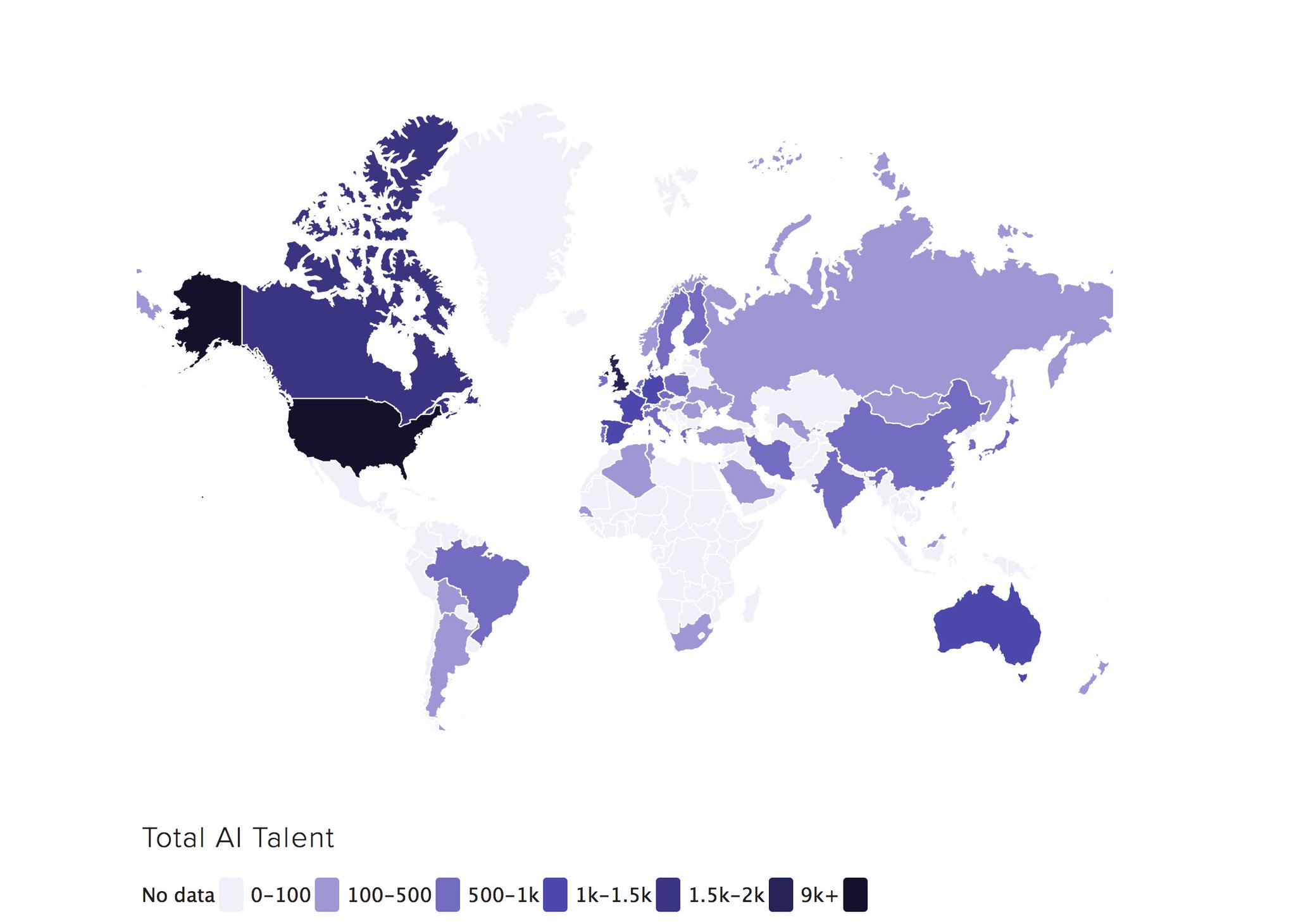
TommyG
Google search of the word transhumanism—which literally means beyond human—brought up about 100,000 pages. What a difference a few years makes. Today, the word transhumanism now returns almost 2 million pages on Google. And dozens of large social media groups on Facebook and Google+—consisting of every type of race, age group, sexual orientation, heritage, religion, and nationality—have transhuman in their titles.
CaffD
Robot-computer works according to programs that was put in
its computer-brain by an engineer-programmer.
#
Human brain-computer also works according to some programs.
These programs were put in human brains by parents, schools, people
that we were respect, medium, educations and a culture of societies.
#
What is difference ?
A brain-computer works only on one (1) level programming
and therefore robot can behave ”consciously”.
Human brain works on two (2) levels: conscious and subconscious.
It was said:;
”The conscious mind is just as the ” tip of the iceberg ”
. . . . the visible 10 percent your Conscious Mind,
and the hidden 90 percent your Subconscious Mind.”
A few can use the power of Subconscious Mind.
Most are doubt if such thing actually exist.
=========
Powers Of The Mind! (What we all can actually do!) /7,429,848 views/
https://www.youtube.com/watch?v=NnjJCs4YUCA
#
Scientists Prove that Telepathy Is Possible With Technology
globalpeek.com – Scientists Prove that Telepathy Is Possible With Technology | GlobalPeek in World News
===============
” Invention is not the product of logical thought,
even though the final product is tied to a logical structure.”
Albert Einstein
” We cannot solve our problems with the same thinking
we used when we created them.
Albert Einstein
Old common logical thought was changed on a new ” invented” logical thought.
Before the new ” invented” logical thought wasn’t in the brain’s program.
How does a new ” invented ” thought appear?
How can one program-state, internal to our brain, represent another
physical program-state radically different (!) from the first state?”
Einstein was a pioneer of a new discovery and said:
” Invention is not the product of logical thought . . . ”
What does can mean?
In my opinion:
New invention is ”a product” of subconscious quantum process (!) when
old logical thought changes on a radically new logical -conscious thought
CaffD
singularity people (many at Singularity University) don’t like the term transhumanism or meta-intelligence. Transhumanists don’t like posthumanism. Posthumanists don’t like cyborgism. And cyborgism advocates don’t like the life extension tag. If you arrange the groups in any order, the same enmity occurs. All sides are wary of others, fearing they might lose ground in bringing the future closer in precisely their way.
Adam T
Hope that never
johnbuzz3
You can have the best of all worlds in the future of you want. Having synthetic body and high density DNA brain housed within that synthetic body, and your mind is constantly synced to the cloud in the event of unforseen accident. Future is so bright.
TomCat
I may be a bit of a contrarian (and want my cyber future too) but I hope we never cease to be, at least in spirit and virtuality. Organic chemistry is more than just copying, reproducing, it’s a direction, a liquid alternative of possibilities, working around the physical barriers of the universe.
TomK
I don’t see anything more fundamentally different about cyberization of ourselves, and different practices and government structures we’ve tried ever since we’ve been around, just to improve our lot for ourselves and others. When done to some extremes (compare, without judgement, the different lives we all lead in the world right now, and how different just by virtue of the virtual social system we find ourselves in) some populations exhibit far less diversification than others. I just don’t want us to extinguish our possibilities for the sake of some comforts. I’d go so far as to say there are already systems in place that purposefully dehumanize and strip biology of some of its strengths, but some don’t like to scrutinize themselves like that.
I think with unlimited potential to reshape ourselves, we ought to have a far better and more comprehensive idea of what we are and could be, minus outside influence, otherwise we’re just strapped to the front of a rocket with little ability to steer it.
Don Fisher
A machine with superhuman scientific research abilities would be able to beat the human research community to milestones such as nanotechnology or advanced biotechnology. If the advantage becomes sufficiently large (for example, due to a sudden intelligence explosion), an AI takeover becomes trivial. For example, a superintelligent AI might design self-replicating bots that initially escape detection by diffusing throughout the world at a low concentration. Then, at a prearranged time, the bots multiply into nanofactories that cover every square foot of the Earth, producing nerve gas or deadly target-seeking mini-drones.
Tom299
Neural networks are a subset of machine learning techniques. Essentially, they are AI systems based on simulating connected “neural units,” loosely modeling the way that neurons interact in the brain. As computer processing power has increased we see that large training data sets have been used to successfully analyze input data such as images, video, and speech. AI practitioners refer to these techniques as “deep learning,” since neural networks have many (“deep”) layers of simulated interconnected neurons.